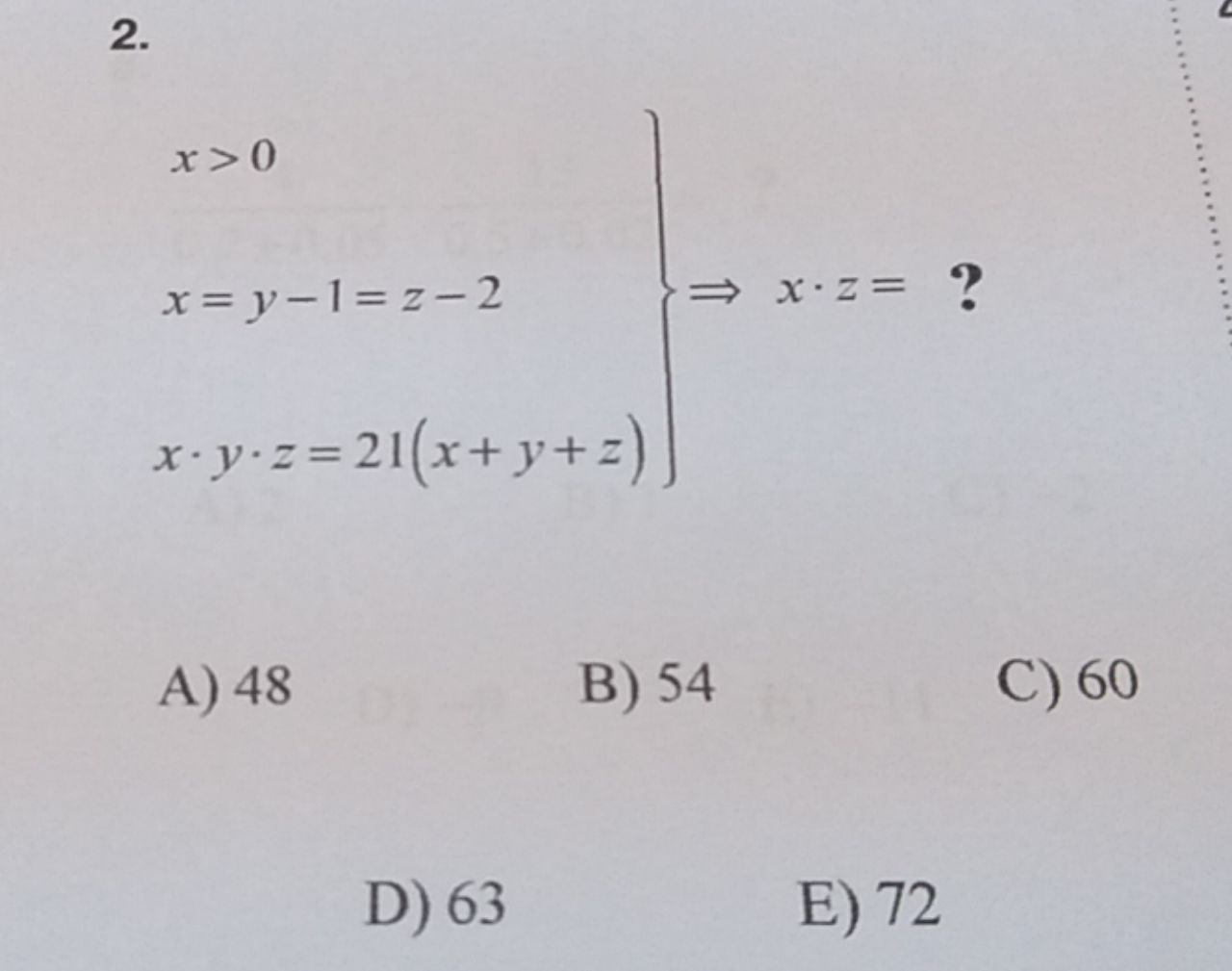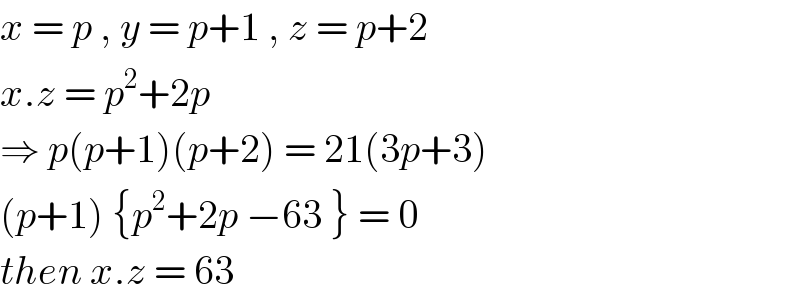Question Number 90379 by jagoll last updated on 23/Apr/20

Commented by john santu last updated on 23/Apr/20

$${x}\:=\:{p}\:,\:{y}\:=\:{p}+\mathrm{1}\:,\:{z}\:=\:{p}+\mathrm{2} \\ $$$${x}.{z}\:=\:{p}^{\mathrm{2}} +\mathrm{2}{p} \\ $$$$\Rightarrow\:{p}\left({p}+\mathrm{1}\right)\left({p}+\mathrm{2}\right)\:=\:\mathrm{21}\left(\mathrm{3}{p}+\mathrm{3}\right) \\ $$$$\left({p}+\mathrm{1}\right)\:\left\{{p}^{\mathrm{2}} +\mathrm{2}{p}\:−\mathrm{63}\:\right\}\:=\:\mathrm{0} \\ $$$${then}\:{x}.{z}\:=\:\mathrm{63}\: \\ $$
Commented by jagoll last updated on 23/Apr/20

$$\mathrm{thank}\:\mathrm{sir} \\ $$
